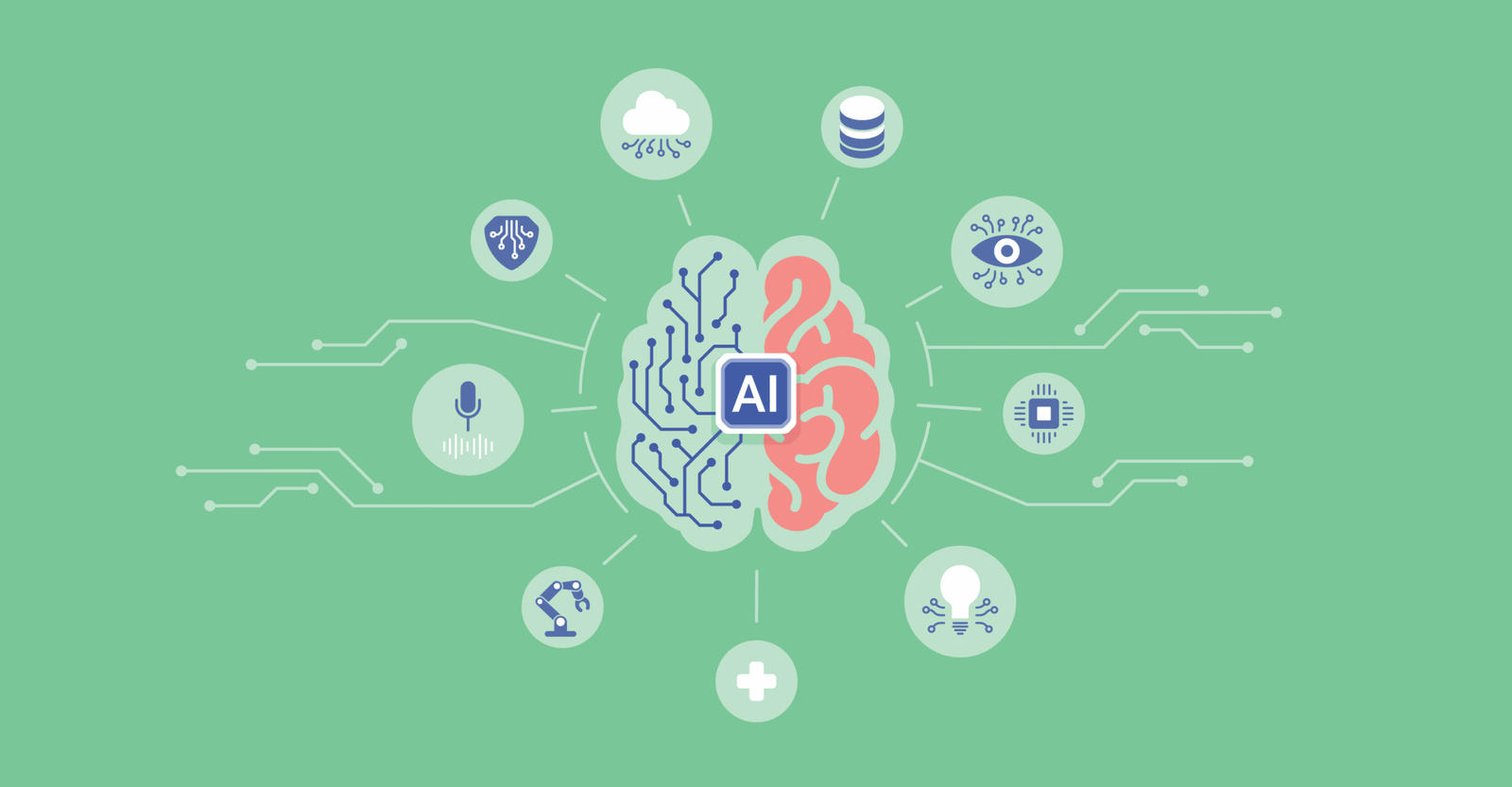Artificial Intelligence (AI) is the simulation of human intelligence in machines that are programmed to think, learn, and make decisions. AI enables computers to perform tasks such as problem-solving, speech recognition, decision-making, and image processing, which traditionally required human intelligence.
Understanding how AI works is essential for businesses, students, and technology enthusiasts as AI continues to reshape industries worldwide.
Core Components of AI
AI works through a combination of algorithms, data, and computing power. Its main components include:
- Machine Learning (ML): Machines learn patterns from data to make predictions or decisions without being explicitly programmed.
- Deep Learning: A subset of ML using neural networks to mimic the human brain for tasks like image recognition and natural language processing.
- Natural Language Processing (NLP): Allows machines to understand, interpret, and respond to human language.
- Computer Vision: Enables machines to process and analyze visual information from the environment.
- Robotics: AI-powered robots can perform complex physical tasks autonomously.
These components work together to allow machines to analyze data, learn from experience, and make intelligent decisions.
How AI Learns: The Process Explained
AI systems follow a structured process to learn and operate:
- Data Collection: AI relies on large datasets collected from various sources like images, text, and videos.
- Data Processing: Raw data is cleaned and organized for the AI system to understand.
- Algorithm Training: Machine learning algorithms are trained using the processed data. The system identifies patterns, trends, and relationships.
- Testing and Validation: The AI system is tested with new data to measure its accuracy and efficiency.
- Deployment and Feedback: Once validated, AI is deployed in real-world applications. Continuous feedback helps the system improve over time.
Through this cycle, AI improves autonomously, making it highly effective in complex tasks.
Types of AI
AI can be categorized into different types based on capability and functionality:
- Narrow AI: Designed for a specific task like voice assistants (Siri, Alexa) or recommendation systems.
- General AI: A hypothetical AI capable of carrying out any cognitive function that a human can.
- Superintelligent AI: Future AI that surpasses human intelligence in all aspects, still theoretical.
Most AI applications today are Narrow AI, designed to solve specific problems efficiently.
Applications of AI in Real Life
AI is transforming industries and daily life in numerous ways:
- Healthcare: AI helps in disease diagnosis, drug discovery, and personalized treatment.
- Finance: Fraud detection, risk analysis, and automated trading use AI algorithms.
- Retail: AI powers recommendation engines, inventory management, and customer service chatbots.
- Transportation: Self-driving cars, traffic management, and route optimization rely on AI.
- Entertainment: Streaming platforms use AI for personalized recommendations.
AI’s ability to analyze data and make decisions faster than humans is revolutionizing the global economy.
Challenges in AI Implementation
While AI has enormous potential, it also faces challenges:
- Data Dependency: AI systems require large amounts of quality data to function accurately.
- Ethical Concerns: Bias, privacy issues, and accountability are critical ethical challenges.
- High Cost: Implementing AI technology can be expensive and resource-intensive.
- Job Displacement: Automation may replace certain human jobs, requiring workforce reskilling.
Addressing these challenges ensures AI benefits humanity responsibly.
Conclusion: The Future of AI
Understanding how AI works is essential as it becomes a central part of technology and innovation. AI combines data, algorithms, and computing power to simulate human intelligence, solve complex problems, and create new opportunities.
With responsible development, AI has the potential to transform healthcare, business, transportation, and education, making life more efficient and intelligent. Learning about AI today prepares us for a smarter, AI-driven future.
RCPC Gully Grating and Gully Pit Cover
Read Also : Interior Decoration Website Design
![]()





